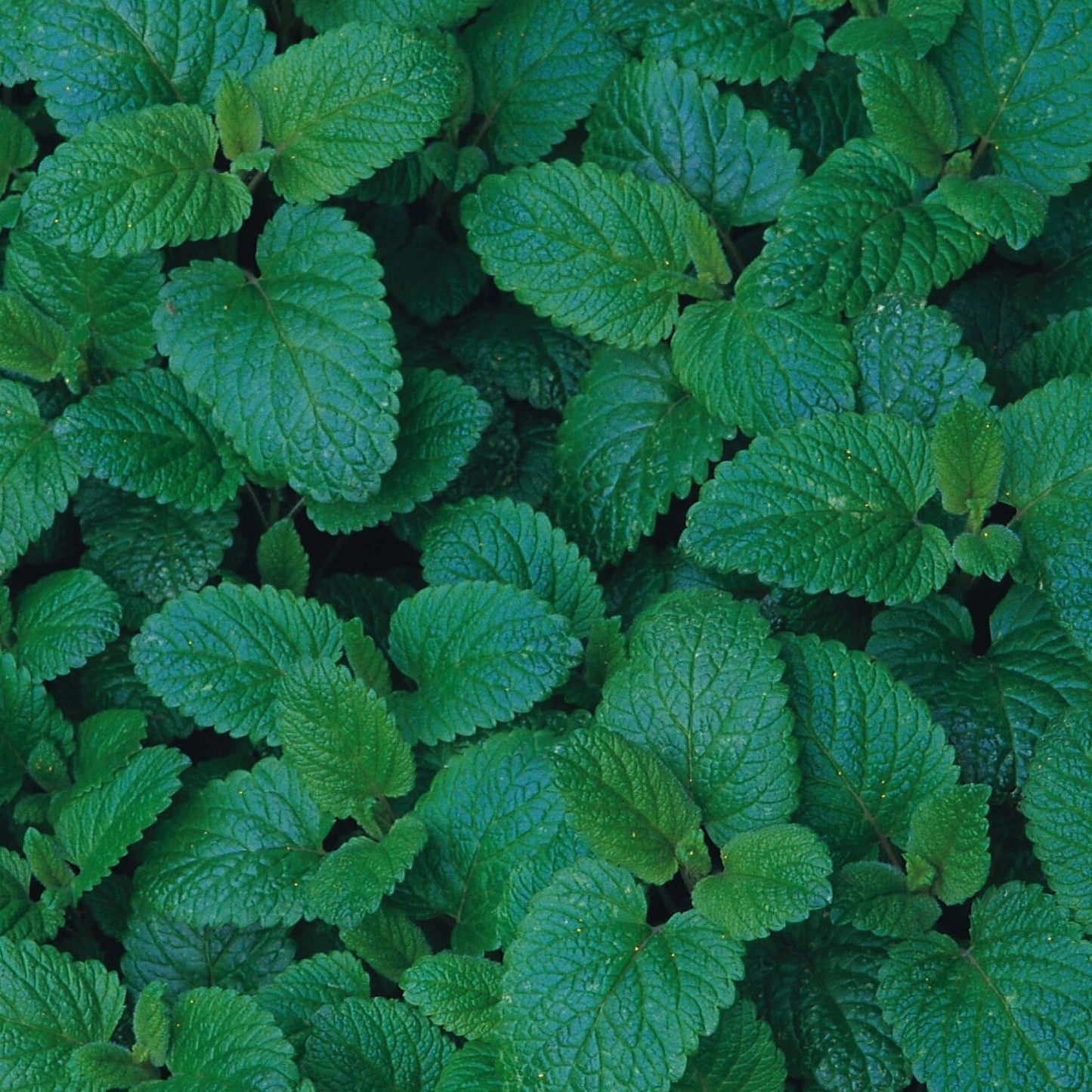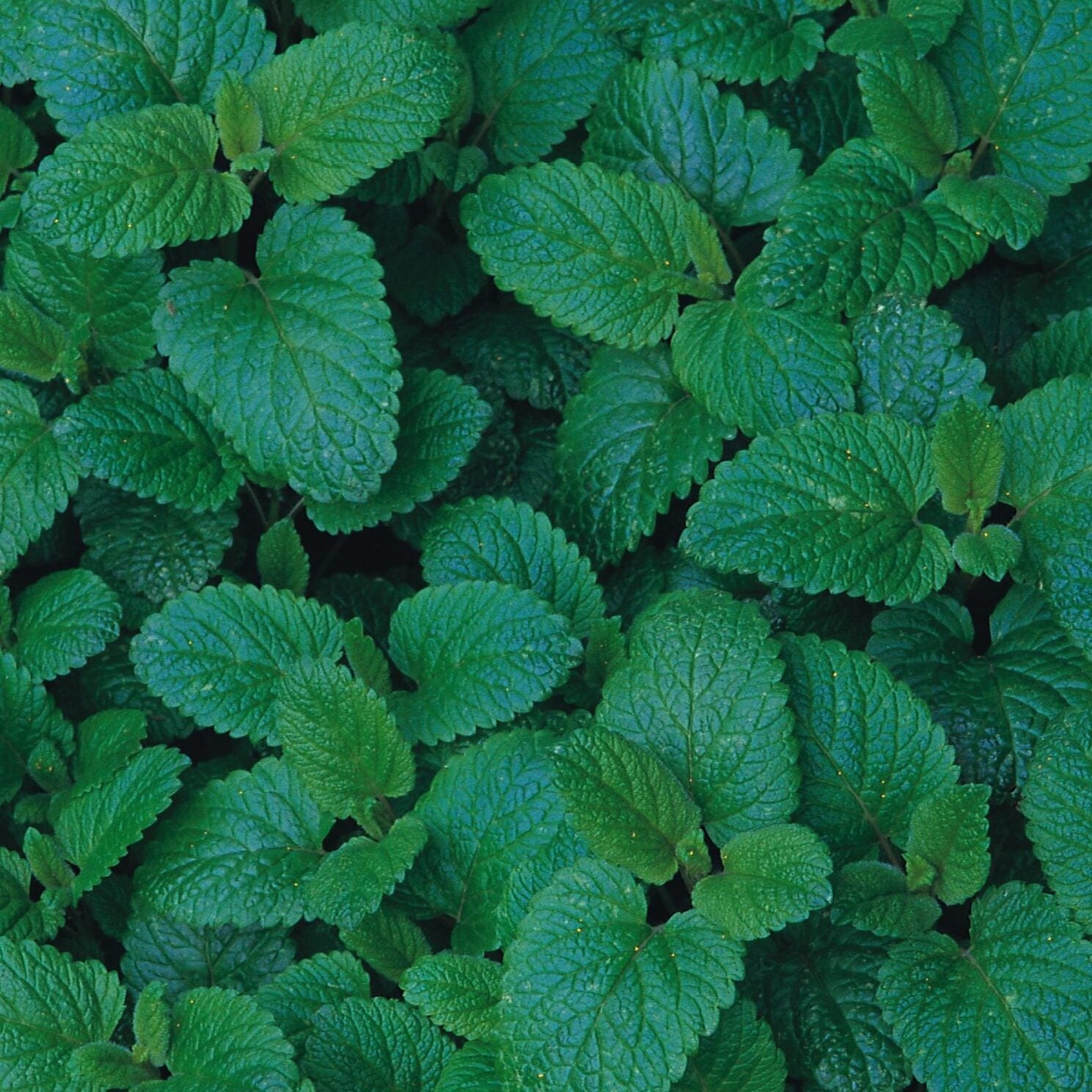Lemon Balm
Lemon Balm
Packet Size: 50 seeds
Couldn't load pickup availability
Lemon Balm, Melissa officianalis, is the most delightful lemon scented herb, the leaves (appearing from early spring) hold the flavour whilst the flowers (from July) seem irresistible to bees: it has the common name ‘bee balm’ and Melissa is Greek for Honey Bee. A tea made from these leaves is known to be a calming drink. Height generally 45-60cm, in rich soil it can grow towards 100cm. Perennial.
You can find more information on the uses of Lemon Balm below
This variety is part of our naturally nurtured range, the seed comes from an organic source
🌱 Seasonal Growing Guide
SPRING:
Sow the fine seeds in a seed tray and just cover with compost or perlite. Germination takes 7-14 days. Keep the compost on the dry side. When large enough to handle pot up into individual pots and grow on.
SUMMER:
Plant out, spacing 30-45cm apart, in a small garden contain it in a pot. Harvest the leaves throughout the summer. Trim some flowers off for the best leaves leaving the rest to flower for the bees. Cut back the plants after flowering.
AUTUMN:
Divide established plants, the plant dies back in the winter.
WINTER:
Plants die back in the winter although hardy if prolonged -5ºC or lower is forecast cover with bark, fleece or straw.
📌USES:
WILDLIFE FRIENDLY
- A magnet for honeybees, bumblebees, and solitary bees—especially when in full flower.
- Its sweet lemony scent and nectar-rich blooms are irresistible to pollinators in midsummer.
- Supports a range of night-flying insects, which help attract bats to your garden at dusk.
- Great for planting near vegetables or fruit trees to boost pollination.
EDIBLE:
- The fresh lemon-scented leaves are delicious chopped and tossed in salads
- Fish and poultry dishes are very well suited to the delicate flavour
- Jams, liqueurs, simple syrups, and infused honeys can all use Lemon Balm
- The leaves are often made into a tea infusion
- Use to make refreshing flavoured water
HISTORICAL
- Traditionally planted by bee hives as thought to keep bees happy and at home!
- An herb known, named and used by the Ancient Greeks
OTHER
- Lemon Balm tea is used medicinally to improve sleep and help with anxiety and stress.
- It was used as far back as the Middle Ages to improve appetite, and ease pain and discomfort from indigestion (including gas and bloating, as well as colic).
- In magical lore Lemon balm symbolizes feminine energy, intuition, and emotional healing, often used in spells to attract love and prosperity
- The antibacterial properties of lemon balm help to cleanse pores and reduce the occurrence of blackheads. It is believed to help with healing, which makes it a popular natural remedy for insect bites and stings, cuts, and grazes.
- Crushed leaves rubber on the skin are said to deter mozzies and gnats
- Please Note: we do not promote the medicinal use of plants – guidance and information should be sought elsewhere.

Collapsible content
Sowing
- Mar
- Apr
- May
Harvesting / Flowering
- Jun
- Jul
- Aug
- Sep
- Oct

